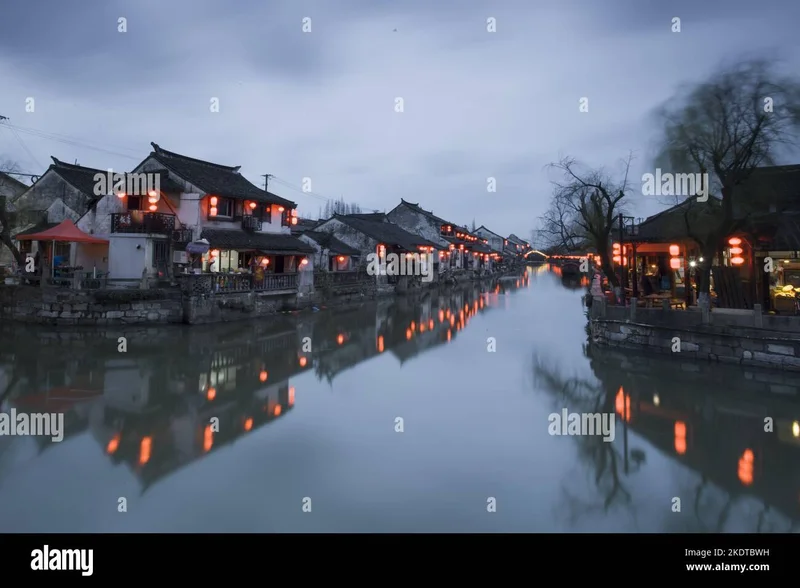Title: Is Shanghai Still the Future? A Data Analyst's Reality Check
Shanghai. The name itself conjures images of futuristic skylines, bustling commerce, and relentless growth. But is the reality on the ground keeping pace with the hype? A look at recent data suggests a more nuanced picture – one where the city is evolving, but not always in the ways we expect.
The Allure of Shanghai: A Tourist's Paradise or a Local's Grind?
National Geographic paints a picture of a city brimming with energy, a place where "locals work hard and play harder." The article highlights a whirlwind tour, from sampling street food at dawn to sipping cocktails in trendy bars at night. It's a compelling narrative, designed to lure tourists and project an image of effortless cool. But let's unpack that a bit.
The suggested itinerary focuses heavily on the former French Concession, a district known for its historical charm and expat-friendly amenities. While undeniably beautiful, this area represents a carefully curated slice of Shanghai life. How representative is it of the city as a whole, especially for those who aren't tourists or wealthy expats? The article mentions a "food street" being swallowed by development. This is a crucial detail often glossed over: rapid urbanization and redevelopment are reshaping the city, often at the expense of traditional neighborhoods and local businesses. Is Shanghai truly prioritizing the needs of its residents, or is it primarily catering to a globalized image?
The article also emphasizes the seamless blend of East and West, pointing to craft beer bars and cocktail lounges. While these establishments are undoubtedly popular, they also reflect a certain degree of cultural homogenization. Are we celebrating Shanghai's unique identity, or simply applauding its ability to mimic Western trends?
Innovation and Disruption: A Tale of Two Cities?
The narrative of Shanghai as a hub of innovation gets a boost from Porsche's recent investment. The opening of their integrated R&D center in Shanghai (operational from November 5, 2025) is touted as a major step in their "In China, for China" strategy. Porsche is clearly betting big on the Chinese market, aiming to accelerate local innovation by merging German engineering with China's digital ecosystem.
The stated goal is to develop "intelligent solutions that deeply connect to the digital life and specific needs of our Chinese customers." The first fruit of this labor, a China-exclusive infotainment system, is slated for release in mid-2026. Porsche claims this system will feature an AI-powered voice assistant, immersive 3D vehicle controls, and deep integration with China's digital ecosystem.

But here's where a healthy dose of skepticism is warranted. How much of this innovation is genuinely groundbreaking, and how much is simply adapting existing technology to the specific demands of the Chinese market? The article highlights the claim that the Shanghai R&D center has enabled Porsche to cut development cycle times "from years to months." This is a bold assertion. Is this "China Speed" sustainable, or is it a reflection of a less rigorous testing and development process? And more importantly, does it translate to a superior product, or simply a faster one?
I've looked at hundreds of these corporate press releases, and the level of self-congratulation is often inversely proportional to the actual innovation.
Safety in the Skies: A Concerning Trend?
A recent report highlights a series of emergency landings faced by Delta Airlines, including one flight bound for Shanghai that had to return to LAX after experiencing an engine problem (January 14, 2020). While this incident occurred several years ago, the dumped fuel caused skin irritation for individuals on the ground, leading to a class-action settlement in 2025 (approximately US $78-79 million, to be precise).
The report also details other incidents, including engine failures, hard landings, and onboard fires. While Delta emphasizes that safety is their top priority, the sheer number of incidents raises concerns about the overall state of air travel. Is this a temporary blip, or a sign of systemic issues within the airline industry? The data is insufficient to draw definitive conclusions, but the trend is undeniably worrying. New York Joins Atlanta, Toronto, and Shanghai in a Spree of Emergency Landings Faced by Delta Airlines Leading to Travel Disruptions: Are You Safe to Travel for Future?
Shanghai: A City at a Crossroads
Shanghai is undoubtedly a dynamic and rapidly evolving city. But the dominant narrative of unbridled growth and effortless cool doesn't always align with the data. The city faces challenges related to urban development, cultural homogenization, and, potentially, even the safety of air travel to and from the region. It's crucial to look beyond the glossy brochures and carefully curated itineraries to understand the true complexities of this global metropolis.
